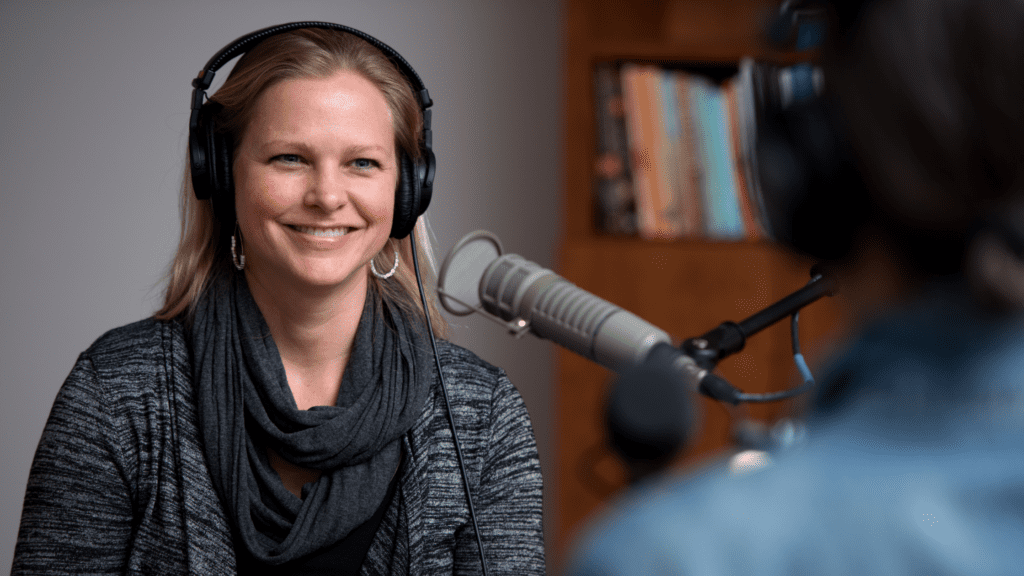
As the Mind & Life podcast reaches a major milestone with 1,000,000 downloads, I wanted to take a moment to share a few reflections about what I’ve been learning from the show.
When we launched in April 2020, there were a lot of unknowns. We’d been preparing for months, and were excited to start sharing wisdom from leaders and thinkers who put the mind front and center. Then COVID happened, and the world shifted.
I remember our team paused to question whether we should even proceed with the launch. The issues the world was facing loomed so large, maybe a podcast about understanding our minds wasn’t what people wanted or needed just then. Maybe it wouldn’t feel relevant. We decided to go ahead with the show as planned in the hopes that the insights from our guests could still be useful in the midst of all the turmoil.
It turned out that many people valued these conversations and the topics we dive into on the show. We’ve seen our listener base grow steadily over the past four years, and receive regular feedback about how impactful this knowledge is for folks in their daily lives.
Of course, as a global community we still face many unknowns. The last few years have brought into sharp focus the challenging realities of climate change, widespread polarization and division, systemic racism, a global rise in mental health issues, and more. And what we’ve seen is that contemplative science—this way of examining the mind from multiple perspectives—has a lot to say about how we might best meet these challenges.
One major learning I’ve taken away is: minds matter. Underneath so many of the issues we face is a mindset. And it’s increasingly becoming clear that if we don’t shift our mindsets to truly embrace the reality of our interconnection, the important work being done at policy and structural levels will only go so far.
After nearly 70 in-depth conversations with a diverse range of guests including cognitive scientists, meditation teachers, psychologists, anthropologists, lawyers, activists, and educational leaders, some themes have emerged again and again:
- We are not separate. None of us exists in isolation. Instead, when we look closely, we find ourselves embedded in a web of mutual interdependence. The superficial divisions we’ve been trained to see are actually illusions. Our minds—indeed, our selves—are not separate from the dynamic physiological processes of our bodies, nor from the societies and cultures we live in. People with vastly different worldviews and beliefs nonetheless share fundamental human needs and capacities—for safety, peace, love, compassion, autonomy, connection. And as humans, we are intimately a part of nature; the “environment” is not something outside of us.
- The mind and the body are one system. We’ve learned that our thoughts and emotions both shape, and are shaped by, our brains, immune systems, hormones, sleep, microbiome, the food we eat, and the activities we undertake. Rather than distinct concepts of body and mind, it’s more appropriate to describe these interconnected processes as bodymind.
- Habits can change. Much of our subjective experience is driven by mental habits and patterns that we’ve developed over the course of our lives. Many habits are useful, helping us respond quickly and effectively in the world. But some habits can be maladaptive, leading to mental and emotional distress and relational difficulty. We know that through intentional practices like meditation, we can shift our habit patterns to move us toward well-being and collective flourishing.
- Community is key. Humans are built for social connection. We regulate each other’s nervous systems, which means we can have enormous impact on those around us, and vice versa. We also know that social connection is the most important factor for longevity and overall well-being.
These insights inspire me to keep tending to my mind (my bodymind!), and I encourage you to do the same. Tend to others’ as well. Even if it’s just through the way you’re showing up in the world, have no doubt—you’re creating change.
I’m honored to have the chance to keep learning with you, and am so grateful we’re on this journey together. Thank you—for listening, for sharing, and for supporting our efforts. Stay tuned in the coming months for more episodes, more insights, and more chances to expand your mind.
Wendy Hasenkamp is Mind & Life’s Science Director and the host of the Mind & Life podcast.

